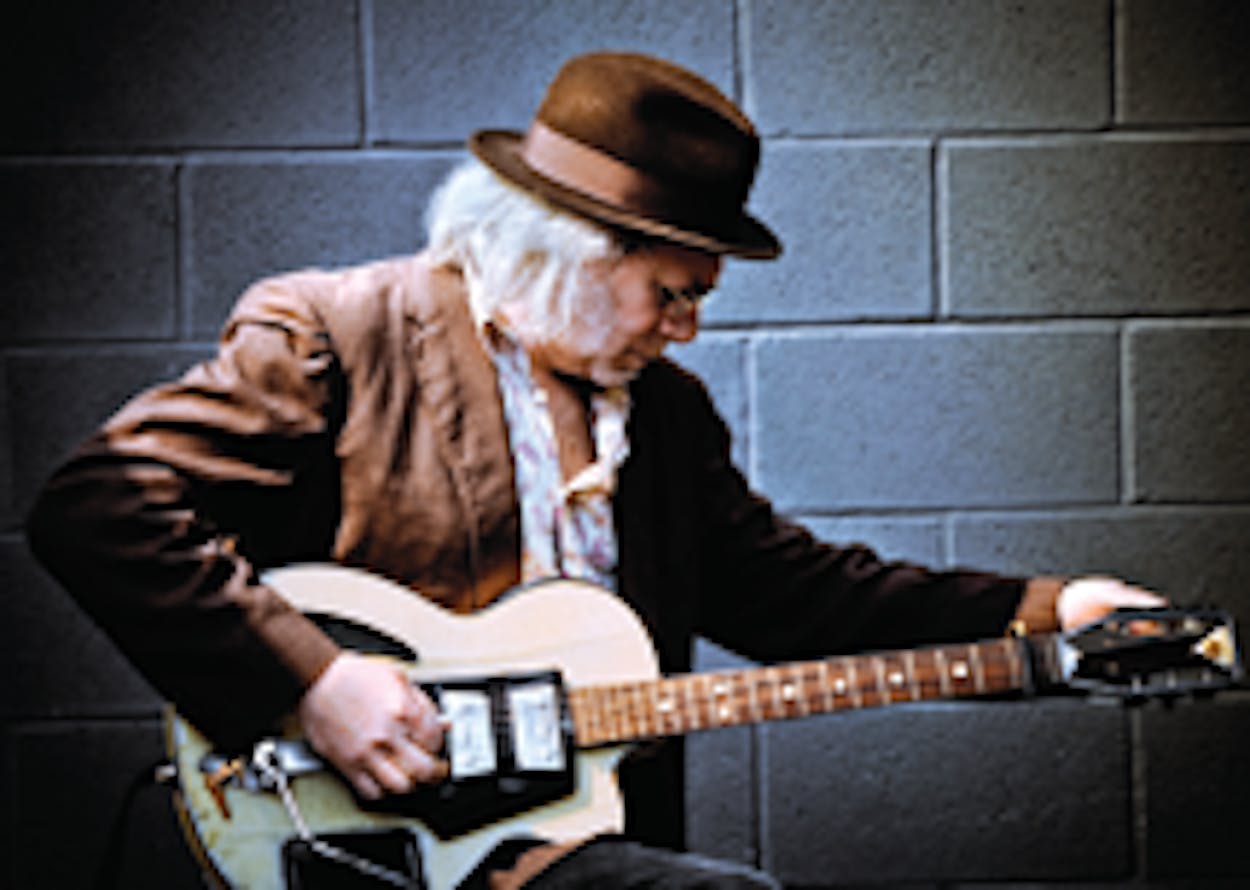Born in Ohio, the country singer-songwriter-guitarist made his way to Austin in 1976 at the height of the cosmic cowboy movement. There he met his wife, singer-songwriter Julie Miller, and moved on to New York, Seattle, San Francisco, and Los Angeles before settling in Nashville. Over the past decade, he’s gone from being an obscure sideman to an award-winning recording artist and in-demand producer, working the boards for the likes of Patty Griffin and Jimmie Dale Gilmore. Two years ago, he signed on as the tour guitarist for the acclaimed Raising Sand collaboration between Led Zeppelin front man Robert Plant and bluegrass artist Alison Krauss. His latest project is co-producing Plant’s new solo release, Band of Joy (Rounder).
You seemed to have no trouble working your way into the cliquish Nashville scene. Within two years you were playing with Emmylou Harris.
I didn’t know anyone when I moved to town. We were broke in L.A., which was why we moved. After that, everything happened pretty organically. Emmylou recorded a song of Julie’s, and I heard that she was looking for another guitar player, so I just joined the audition pile, and somehow it worked out.
How did you get involved with Robert Plant?
He came to an Emmylou show in Dublin. We talked about bands that we both liked from the sixties, Love and the San Francisco sound. I guess he kept my name in the back of his head. The Plant-Krauss tour was a life-changing experience musically.
You suffered a heart attack on the tour.
Actually, that was after the tour ended. I was producing Patty Griffin’s Downtown Church, and then I went out on tour with Three Girls and Their Buddy, which was Patty, Shawn Colvin, Emmylou, and me. I had a heart attack onstage in Baltimore. I made it through the song I was singing, finished the gig—
You finished the show?
Yeah, it was the meet and greet that did it. I wanted to stick around. The guy who created that show The Wire was there.
David Simon.
Yeah, I’m a huge fan, so I walked down to the basement, had a beer, got to talk to him a little bit, and then the pain started getting so bad that I didn’t think I could walk up the stairs again. They got me over to Johns Hopkins. It was a big heart attack, and they said, “You need an emergency triple bypass right now.” It worked out fine. But that put me out of commission for a few months.
And now you’ve co-produced Robert Plant’s new CD.
Robert and I got along good on the tour and had a lot of common ground musically. I took him to a San Francisco festival called Hardly Strictly Bluegrass to hear some players that I thought would work for the project. We went in the studio a few months later, kept expectations low to the ground so nobody would be disappointed, and it worked out good.
It’s an eclectic song selection. Did you have a hand in that?
I didn’t. I always like to, even if they don’t ask for it; I probably sent Patty five hundred songs for her record. I threw stuff to Robert, but he had a pretty clear vision of what he wanted to record.
There’s a song, “The Only Sound That Matters,” by Austin band Milton Mapes (now Monahans) on the album. How did Robert find that song?
I mastered an album by that band, but I didn’t bring that to him. Robert has a friend in California who turns him on to great songs. But I love the song, and I love Robert’s vocal on it.
This CD will surprise fans of the Krauss-Plant record. It’s more of a rock and roll record. There’s some amazing guitar on the track “Silver Rider.” Is that you?
I’ve never heard you play like that. I haven’t played guitar like that since I was a kid. It was just such a relaxed studio environment. There was time to experiment, and I got to explore some sounds I hadn’t messed with since I was a teenager.







